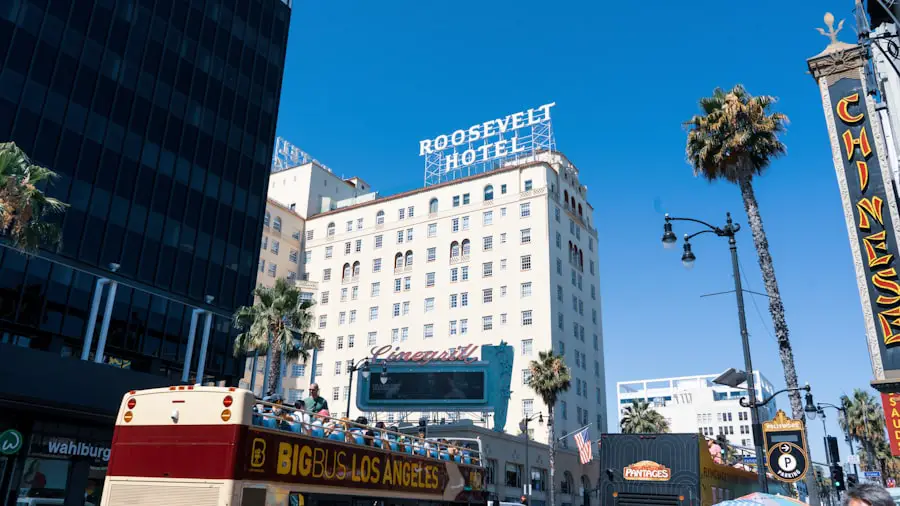The Eagles, an iconic American rock band formed in 1971, have left an indelible mark on the music landscape. Comprised of members Glenn Frey, Don Henley, Bernie Leadon, and Randy Meisner, the band quickly rose to prominence with their harmonious blend of rock, country, and folk influences. Their sound, characterized by intricate guitar work and lush vocal harmonies, resonated with a wide audience, leading to a string of chart-topping hits throughout the 1970s.
The Eagles’ self-titled debut album introduced listeners to their unique style, but it was their subsequent releases that solidified their status as one of the best-selling bands in history. The band’s most celebrated work, “Hotel California,” released in 1976, stands as a testament to their artistic prowess and cultural relevance. This song not only showcases the Eagles’ musical talent but also serves as a narrative that delves into deeper themes of excess, hedonism, and the darker aspects of the American Dream.
The Eagles’ ability to weave storytelling into their music has captivated audiences for decades, making them a quintessential part of the rock genre and a significant influence on countless artists who followed.
Key Takeaways
- The Eagles are an iconic American rock band known for their harmonious sound and introspective lyrics.
- “Hotel California” is a song that tells the story of a weary traveler who checks into a luxurious hotel only to find that he can never leave.
- The lyrics of “Hotel California” are rich with metaphors and symbolism, exploring themes of excess, disillusionment, and the dark side of the American dream.
- The song delves into the hedonistic lifestyle and the inability to escape materialism and decadence, painting a vivid picture of the 1970s California music scene.
- “Hotel California” has had a lasting cultural impact, leaving behind a legacy that continues to captivate and mystify audiences.
The Story Behind Hotel California
“Hotel California” was born out of a confluence of creative energies and personal experiences. Written by Don Felder, Don Henley, and Glenn Frey, the song emerged during a period when the band was grappling with the pressures of fame and the excesses that accompanied it. The lyrics tell the story of a traveler who arrives at a luxurious hotel that initially appears inviting but soon reveals itself to be a trap from which escape is impossible.
This narrative reflects the band’s own experiences in the music industry, where the allure of success often masks a more sinister reality. The genesis of “Hotel California” can be traced back to Felder’s haunting guitar riff, which he composed while reflecting on the duality of life in California. The song’s structure is notable for its intricate interplay between acoustic and electric guitars, creating an ethereal soundscape that complements its lyrical themes.
As the band worked on the song, they infused it with elements of rock and Latin music, resulting in a rich tapestry of sound that would become instantly recognizable. The recording process was meticulous, with the band experimenting with various arrangements until they achieved the perfect balance between melody and message.
Metaphors and Symbolism in the Lyrics

The lyrics of “Hotel California” are replete with metaphors and symbolism that invite multiple interpretations. The titular hotel serves as a powerful symbol of temptation and entrapment, representing not just a physical place but also a state of mind. The traveler’s initial enchantment with the hotel mirrors the seductive nature of fame and fortune, drawing parallels to how individuals can become ensnared by their desires.
Lines such as “You can check out any time you like, but you can never leave” encapsulate this idea of entrapment, suggesting that once one succumbs to the allure of excess, escape becomes an elusive dream. Moreover, the imagery throughout the song evokes a sense of surrealism and disorientation. Phrases like “the prison of our own device” highlight the self-imposed nature of one’s entrapment, suggesting that individuals often create their own barriers through choices driven by greed or ambition.
The juxtaposition of luxury and decay within the lyrics further emphasizes this theme; while the hotel appears glamorous on the surface, it harbors darkness beneath. This duality serves as a critique of societal values that prioritize material wealth over genuine fulfillment.
Exploring the Hedonistic Lifestyle
| Category | Metrics |
|---|---|
| Travel | Number of trips per year |
| Entertainment | Monthly spending on entertainment |
| Leisure | Hours spent on leisure activities per week |
| Self-care | Frequency of spa visits |
At its core, “Hotel California” serves as a commentary on the hedonistic lifestyle that permeated 1970s America. The era was marked by a cultural shift towards indulgence and excess, with many individuals seeking pleasure without regard for consequences. The song captures this zeitgeist through its portrayal of characters who revel in their desires yet ultimately find themselves trapped in a cycle of consumption.
The hotel becomes a metaphorical representation of this lifestyle—a place where one can indulge in every whim but at a steep price. The allure of hedonism is palpable in lines that describe the opulence of the hotel and its inhabitants. The imagery evokes a sense of paradise where every desire is catered to; however, this paradise is deceptive.
As the traveler discovers, what initially seems like freedom quickly morphs into confinement. This transformation reflects broader societal trends during the 1970s when many sought liberation through excess but found themselves ensnared by their choices. The song serves as both an invitation to explore this lifestyle and a cautionary tale about its inherent dangers.
The Dark Side of the American Dream
“Hotel California” also delves into the darker side of the American Dream—a concept that promises prosperity and happiness but often leads to disillusionment. The song’s protagonist embodies this struggle as he navigates a world that initially appears glamorous but ultimately reveals its emptiness. The hotel symbolizes not just success but also the pitfalls that accompany it; while it offers comfort and luxury, it also represents a loss of freedom and authenticity.
The American Dream is often portrayed as an attainable ideal where hard work leads to success and fulfillment. However, “Hotel California” challenges this notion by illustrating how the pursuit of material wealth can lead to spiritual bankruptcy. The characters within the song are trapped in a cycle of excess, suggesting that their relentless pursuit of pleasure has come at the cost of their true selves.
This critique resonates with listeners who recognize that the promise of happiness through material gain can often lead to isolation and despair.
Themes of Excess and Disillusionment

The themes of excess and disillusionment are intricately woven throughout “Hotel California,” reflecting broader societal concerns during its release. The 1970s were characterized by a cultural landscape rife with contradictions; while many celebrated newfound freedoms and opportunities, others grappled with feelings of emptiness and dissatisfaction. The song captures this dichotomy through its vivid storytelling and haunting melodies.
As listeners engage with the lyrics, they are confronted with images of opulence juxtaposed against feelings of entrapment.
This theme resonates with audiences across generations, as it speaks to universal struggles with identity and purpose in an increasingly materialistic world.
The Inability to Escape Materialism and Decadence
One of the most poignant messages within “Hotel California” is the inability to escape materialism and decadence once one has been ensnared by them. The line “You can check out any time you like, but you can never leave” encapsulates this sentiment perfectly; it suggests that while individuals may attempt to distance themselves from their past choices, they remain haunted by their consequences. This idea resonates deeply in contemporary society, where consumer culture often dictates personal values and aspirations.
Despite his initial allure to the hotel’s offerings, he soon realizes that true freedom lies beyond material possessions. This realization is both liberating and tragic; while it offers insight into the futility of chasing after fleeting pleasures, it also highlights the difficulty of breaking free from societal expectations.
The cyclical nature of this struggle serves as a powerful reminder that true fulfillment cannot be found in external validation or material wealth.
Analyzing the Music and Instrumentation
Musically, “Hotel California” is celebrated for its intricate composition and innovative instrumentation. The song opens with an iconic guitar riff played by Felder, which sets an atmospheric tone that draws listeners into its narrative world. This riff is complemented by Henley’s haunting vocals and harmonies that create an ethereal quality throughout the track.
The interplay between acoustic and electric guitars adds depth to the arrangement, enhancing its emotional resonance. The song’s structure is notable for its seamless transitions between verses and choruses, creating a sense of fluidity that mirrors the protagonist’s journey through the hotel. As the narrative unfolds, instrumental solos—particularly the dual guitar solo performed by Felder and Joe Walsh—serve as pivotal moments that elevate the song’s intensity.
These solos not only showcase technical prowess but also convey emotional depth, allowing listeners to connect with the underlying themes on a visceral level.
Hotel California: A Cultural Impact
Since its release, “Hotel California” has transcended its status as a mere song to become a cultural phenomenon. Its themes resonate across generations, prompting discussions about fame, excess, and disillusionment in contemporary society. The song has been covered by numerous artists across various genres, further solidifying its place in musical history.
Its influence extends beyond music; it has inspired literature, film, and art that explore similar themes of entrapment and existential reflection. The cultural impact of “Hotel California” is evident in its continued relevance in popular discourse. It has been referenced in various media forms—from television shows to documentaries—often serving as a touchstone for discussions about the pitfalls of fame and materialism.
This enduring legacy speaks to its ability to capture complex emotions and societal critiques in a way that resonates with audiences long after its initial release.
Deciphering the Song’s Legacy
The legacy of “Hotel California” is multifaceted; it stands as both a musical masterpiece and a profound commentary on human experience. Its exploration of themes such as hedonism, disillusionment, and materialism continues to resonate with listeners today. As new generations discover the song, they find relevance in its narrative—a reflection of their own struggles with identity and purpose in an increasingly complex world.
Moreover, “Hotel California” has become emblematic of 1970s rock music—a genre defined by its ability to blend storytelling with musical innovation. The song’s intricate composition and thought-provoking lyrics have inspired countless artists who seek to emulate its depth and artistry. As such, it remains a benchmark against which other works are measured—a testament to its enduring impact on both music and culture.
The Continuing Mystique of Hotel California
The mystique surrounding “Hotel California” endures decades after its release, fueled by ongoing interpretations and theories about its meaning. Fans have speculated about everything from hidden messages within the lyrics to connections between the song’s narrative and real-life events in California’s history. This intrigue adds layers to its legacy; listeners are drawn not only to its musicality but also to its enigmatic qualities that invite exploration.
The song’s ability to evoke curiosity speaks to its artistry; it transcends simple categorization as just another rock anthem. Instead, it invites listeners into a labyrinthine world where meaning is subjective and open to interpretation. This ongoing dialogue surrounding “Hotel California” ensures that it remains relevant in contemporary culture—a timeless piece that continues to inspire reflection on life’s complexities amidst an ever-changing landscape.
The song “Hotel California” by the Eagles is often interpreted as a metaphor for the excesses and pitfalls of the music industry. It tells the story of a traveler who checks into a luxurious hotel only to find that he can never leave. This theme of being trapped in a seemingly glamorous but ultimately destructive environment is reminiscent of the cautionary tales found in travel literature. For example, in a related article on the best sleeping bag for backpacking travel, readers can learn about the importance of being prepared and making wise choices while on the road to avoid getting stuck in uncomfortable or dangerous situations. Read more here.
FAQs
What is the song “Hotel California” about?
The song “Hotel California” by the Eagles is about the excesses and pitfalls of the American dream and the hedonistic lifestyle of the 1970s.
Is “Hotel California” based on a real hotel?
The song is not based on a specific hotel, but rather serves as a metaphor for the music industry and the allure of the California lifestyle.
What are some of the themes explored in “Hotel California”?
The song explores themes of excess, materialism, and the dark side of the American dream. It also touches on the idea of being trapped in a cycle of hedonism and disillusionment.
What is the meaning of the lyrics “You can check out any time you like, but you can never leave”?
The lyrics suggest that once you become ensnared in the trappings of the hedonistic lifestyle, it is difficult to escape its allure and the consequences that come with it.
Was “Hotel California” a commercial success?
Yes, “Hotel California” was a commercial success, reaching the top of the Billboard Hot 100 chart and becoming one of the Eagles’ most iconic and enduring songs.
